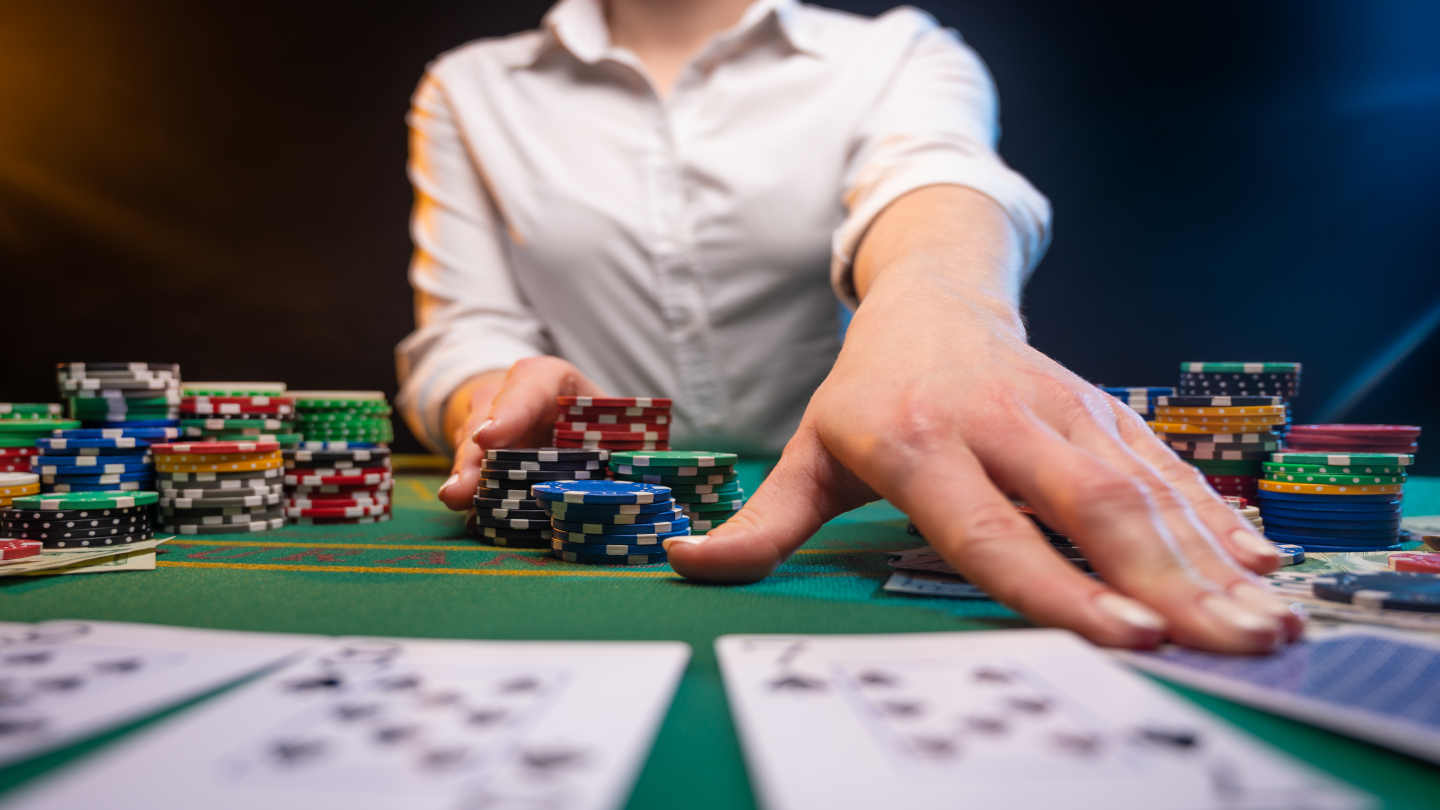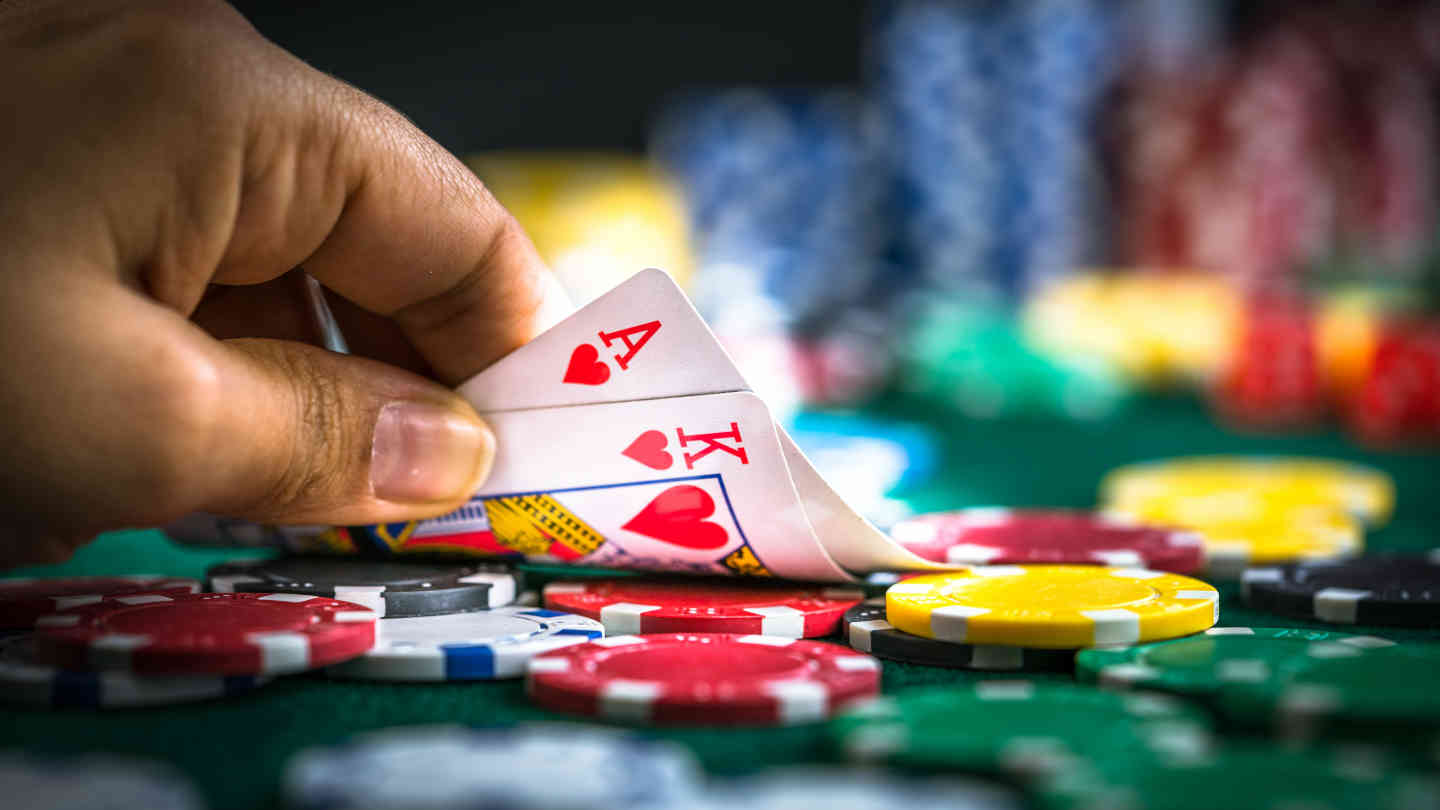Poker Tournament Strategy – How to Win Your MTTs More Often

10 minutes
Poker tournaments are probably the most popular form of poker, from the lowest levels of home game sit and goes to the high-roller tournaments in Las Vegas and Macau.
But while millions of people around the world play them, only a small percentage understand the right poker tournament strategy that’s necessary to win in these games over the long run.
Poker tournaments are complex games. There are so many variables to keep in mind, such as the ever-changing blinds, the payout structure, ICM implications, and more.
In this guide, I am going to teach you how to win poker tournaments more often by following a series of tips and tricks that come out of the playbook of some of the best poker players in the world.
The Hold’em tournament strategy I will introduce through a series of poker tournament tips is relatively basic and simple. Still, it is guaranteed to help you make the money and win tournaments more often.
Without further ado, let’s jump right into it and introduce the top 10 poker tournament tips every poker player should know.
1. Take It Slow in the Early Stages
The early stages of poker tournaments are the time when bad poker players make the most mistakes. Many of them get eliminated in spots that the best in the world would definitely not.
Early on in the tournament, you will have a lot of poker chips relative to the blinds. There will be very little reason to get all of them in the middle unless you have a monster hand.
During the early stage, you should look to play only in good positions, play somewhat tight, and without unnecessary big bluffs.
The chips you win in the early level represent a very small portion of the overall chip count in the tournament. So, you should not care too much about building your stack too much at this stage.
On the other hand, losing an all-in situation on the first level will have the same result as doing so later in the tournament. You will be eliminated!
Instead, you should wait patiently for spots in which bad poker players will stack off with hands like one pair or a weak flush draw against your monsters, which will happen more often than you would imagine.
With a little luck, you will get a few of these situations and chip up quickly. If you don’t get lucky early, don’t worry.
A few decent poker hands in the later levels will make up for all the chips you didn’t win when the blinds were tiny.
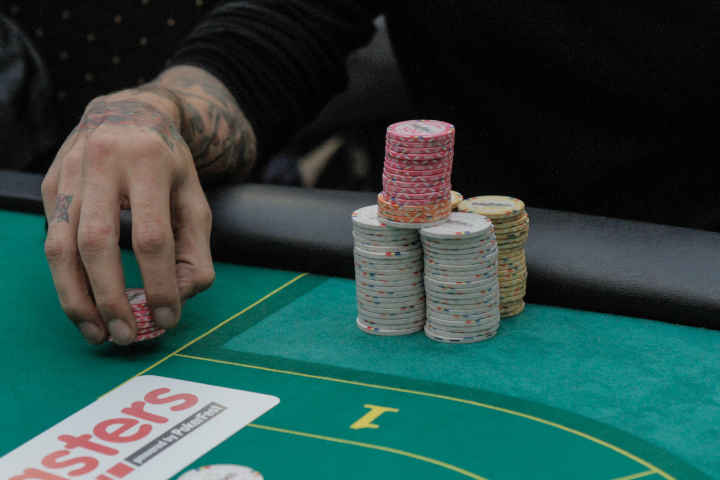
2. Mind Your Position
The position is one of the most important elements of the game of poker in general. But, when it comes to poker tournament strategy, the importance of position cannot be overstated.
Playing your buttons and cutoffs as much as possible and avoiding getting into hands from the small blind and under the gun is one of the things that will separate you from the pond of fish swimming around every poker tournament.
If you are playing the right Hold’em tournament strategy, your opening, calling, and 3-betting ranges should be significantly different based on the poker position you are playing from.
I recommend playing very tight from early positions, regardless of the stack size or the stage of the tournament. You can start expanding your range significantly when you are in late positions.
One particularly problematic position in poker tournaments is the small blind, as you may often think you are getting the right price to call button or cutoff raises.
The truth is that you should barely ever be calling in the small blind and instead either attack the raisers by re-raising them or muck your cards.
The positional disadvantage you will have when playing from the blinds or UTG will destroy your chip EV, and getting aggressive in such situations is always the better plan.
3. Play Tight but Aggressive
Poker tournaments are normally played with relatively short stacks, and this becomes even more true as the tournament progresses and the blinds get big.
This is why playing relatively tight is the right tournament poker strategy for the most part.
Keep in mind that when I say tight, I don’t mean just playing pocket aces, but rather adapting to your position and playing a reasonable opening range from each position.
While playing tight may be the right way to go, I definitely also recommend playing aggressive, which means raising a lot more than calling.
You probably already understand why it is usually better to open a pot for a raise than just open limp. This logic extends to further actions as well.
For example, weak players will often call raises with hands like KJ or T9 on the button, but these hands actually play a lot better as 3-bets.
If you get aggressive with bluffs like these, you will start getting paid off more often when you do get the aces while also being able to bluff and maneuver post-flop on various board textures.
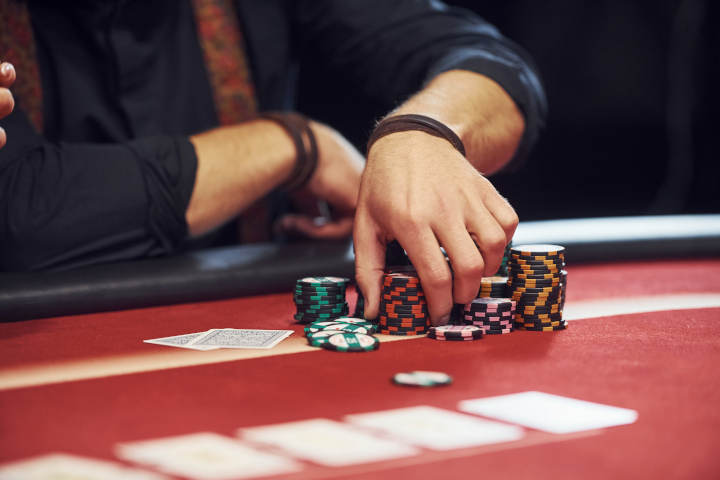
4. Protect Your Stack in Mid Stages
The middle stage of a poker tournament is a true minefield. With a little luck, you have managed to stack off a few weak players early on and are now sitting on a solid stack.
Many players tend to play the table bully with a big stack, which is actually not a good idea during the middle stages.
There is very little to gain by winning many pots in the mid-stages. The blinds are not big enough to make them a significant portion of the overall chips in play, and you are not in the money just yet.
The optimal strategy for this stage suggests you should play relatively passively, protecting your stack when you do make good hands while getting out of the way when you don’t.
You already have enough chips to survive to the bubble stage, and a few well-timed plays will be enough to get you there.
Remember that every hand you get involved in could be your last or could cripple your big stack. For that reason, you should play tight and protect your current stack instead of looking to build it up just yet.
5. Beware of the Payouts
When the tournament starts or the late registration period ends, if there is one, you should look at the payouts and start forging a plan for the later stages.
The first thing you will be looking at is how many players make the money, which will give you an idea of when the bubble stage is going to start.
Furthermore, you should look at the pay jumps that will take place as the tournament gets ITM. This will be a critical part of your poker tournament strategy once you get there.
While payouts will also matter in terms of making those pay jumps, it will be even more important to think about how you can take advantage of other players. Use their reluctance to bust in certain spots when they feel like they could fold their way to more money.
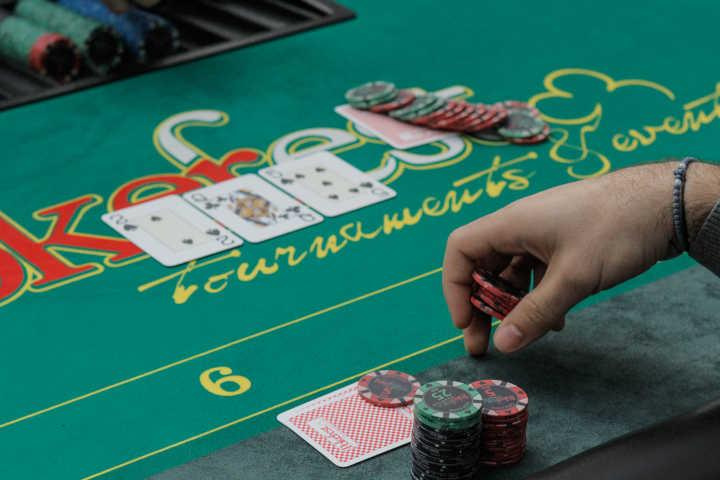
6. Abuse the Bubble
The bubble phase is really the time when you can pounce on weak players who are looking to make their way into the money and make a ton of chips simply by being very aggressive.
If you don’t know what the bubble is, it is the period of the tournament when only a small number of players need to bust for everyone else to be guaranteed some payout.
In this phase, many players will typically tighten up and be reluctant to bust, as the allure of a guaranteed payout will be in the back of their minds.
This is why attacking the short stacks in the bubble phase is one of the best tournament poker tips I can give you. This is especially true in live tournaments where you can assess who at the table looks like they just want to make the money.
Attacking the bubble means raising into the short stacks’ blinds, 3-betting their late position opens, and generally putting pressure on anyone who could bust out in a hand.
This Hold’em tournament strategy works exceptionally well when you have managed to accumulate a huge stack yourself and are able to put a ton of pressure on others without risking busting out yourself.
7. Learn Your Shove/Fold Ranges
Whatever you may think about the mathematics of poker, the truth is that in poker tournaments, there are stages in which this is practically the only thing that matters.
When the stacks get short, there will be very little room for postflop play, bluffing, and leveling wars.
Instead, you will often have decisions that are purely based on poker odds and come down to whether shoving all your chips into the pot is profitable or not.
Optimal tournament shove/fold charts have been around for many years. If you want to have any hope of playing good tournament poker, you should learn them by heart.
One thing I would recommend you avoid is playing a purely shove/fold game as you start approaching 20 big blind stacks. There are better ways to play these stacks without risking your tournament life every time.
That said, even if you just learn when a shove is profitable with a 20 bb stack, you will still be winning more often than you will be playing purely based on your gut.
8. Avoid Calling Off Lightly
The big difference between poker tournaments and cash games is the fact that when you lose an all-in at a cash game table, you simply reload and keep playing.
In a poker tournament, you will be out.
This is exactly why calling off all your chips in a poker tournament is something you should only do if you are quite certain that play is significantly profitable and why you should avoid making close calls.
The main reasoning behind this comes down to the fact you are likely to get better situations in the future if you fold your cards and wait it out instead of making the close call.
If you are among the best players in a poker tournament, you don’t really want to bust out in a coin flip or a situation where you are chasing from behind if there is a likelihood of weaker players gifting you their stacks within a few hands.
I recommend playing very aggressively as part of your poker tournament strategy but avoiding making light calls and making hero calls too often.

9. Beware of the ICM
The independent chip model (ICM) is a poker concept you should study at length if you hope to become a successful poker tournament player.
ICM revolves around the impact of the payout structure on the value of your chips and your stack, which will be quite different than it would be in a cash game.
The reason comes from the fact that you can never win all the money in play in a poker tournament. This means you will need more and more equity to make calls as the tournament progresses.
Since I already said you should avoid making light calls, I can only emphasize how important this is when the tournament gets to a later stage, especially at the final table.
Instead, you should do just the opposite and apply maximum pressure at the final table, especially on those opponents who are the most reluctant to call it all off and possibly bust out.
Unlike the early stage of the tournament, where I urge caution, the late stages of a tournament are the time to put the pedal to the metal and bomb your opponents as often as possible.
10. Play Within Your Means
One of the best poker tournament tips I can give you, and one that is often overlooked, is that you should only play poker within your bankroll.
What I mean by this is that you should avoid buying into poker tournaments for which you don’t have a proper bankroll, as this will result in you being too afraid to bust out, which will lead to poor decision-making.
You should always play tournaments in which busting out does not hurt you too much and is just another day at the office.
The biggest advantage you can have over recreational players and bad regulars is the fact that you don’t care if you lose or not, while they care about making the money and every pay jump along the way.
Before you start playing poker tournaments, be honest with yourself and understand what buy-in levels you can afford to play at. Your results will be dramatically better in tournaments you feel completely comfortable in.
- Poker Squeeze Play – Which Hands Make the Most Sense for Squeezing? - August 10, 2023
- How to Play Low Pocket Pairs in Texas Hold’em - July 29, 2023
- How to Make Deep Runs in MTTs More Often - July 22, 2023











